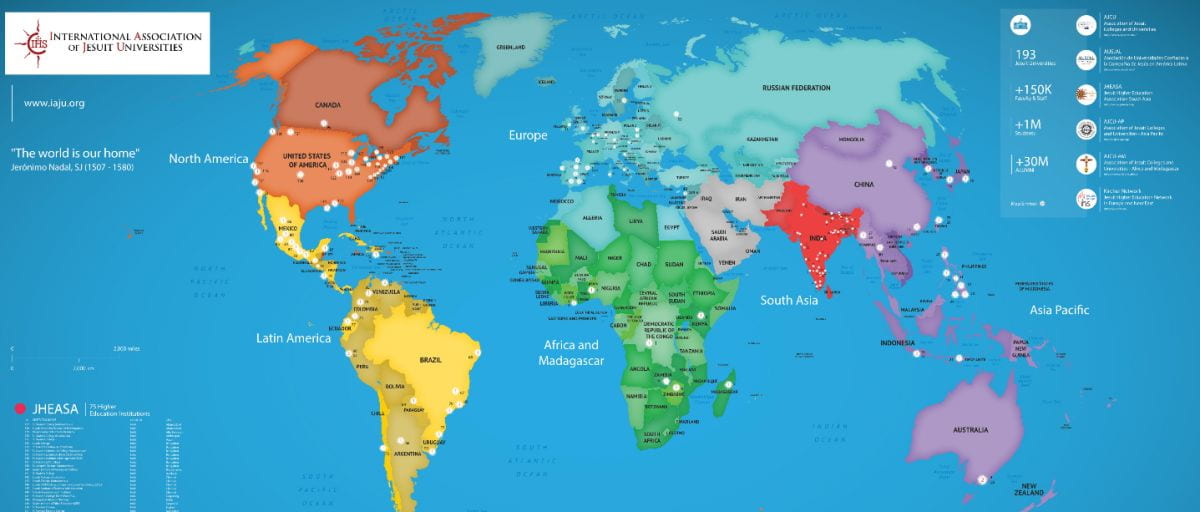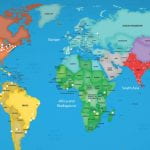We invite you to read the article by Fr. Andreu Oliva de la Esperanza, S.J., president of the Universidad Centroamericana (UCA) José Simeón Cañas in El Salvador. This perspective exemplifies the Jesuit institution’s commitment to social justice during the COVID-19 crisis.
One year coexisting with Covid-19
One year ago, on March 11, 2020, we received notice from the Ministry of Education that we had to close the university for students to prevent the spread of the pandemic caused by Covid-19 in the country. At that time, no case of coronavirus infection had yet been identified in El Salvador. Still, President Nayib Bukele was already taking many measures to prevent the virus from reaching the country. The decision was not a surprise; we expected it but not so soon, we had just started the academic year three days before, and no transmission cases were reported. We had prepared for this possibility, and at the beginning of March 2020, we had constituted a crisis committee to formulate a plan in case of an emergency. We had to take the necessary measures to prevent the spread of the virus in the university community and organize the continuity of our academic and social outreach work if the university was closed, as had already been done in some European countries. Thanks to the crisis committee’s work and the previous training of UCA teachers in the use of LMS platforms, on March 18, classes began again in the virtual modality. It was even more complicated when on Saturday night, March 21, President Nayib Bukele, on national radio and television, decided to implement a mandatory home quarantine until April 21, which was later extended until June 15. It was a tough three months, as we were prepared to offer the online courses but not to manage the online university. We had to make great efforts to modify the computer systems to use them from home. But some operations could not be done online, and a group of colleagues had to continue coming to the UCA, with special permissions to move around and maintain essential administrative tasks.
At the same time that we adapted to this new reality imposed by the coronavirus, the UCA continued with its mission of defense of human rights, especially important in those months, since the decision to place in quarantine centers for 30 days all those who arrived in the country, including deported migrants, resulted in severe violations of human rights. In those quarantine centers, several of our compatriots were infected because the conditions were not adequate. Healthy people were mixed with people infected with Sars-Cov-2, and some people died due to a lack of adequate and timely medical attention.
To know better what was happening in the quarantine centers, the Institute of Public Opinion of the UCA did a survey among the inmates, by which we had first-hand information, which left evidence of the critical deficiencies of these centers and of the diverse violations to the human rights that took place in them.
Especially important has been the work of the university radio station, the YSUCA. It has never ceased its informative and formative work, adapting to the new circumstances, using videoconferencing platforms for interviews, and always offering the possibility for the population to have a radio station where they can share the difficulties they are going through. In the first months of the confinement, the biggest concern, especially for the poor, was the lack of food. But throughout the pandemic, the main problem has been the lack of drinking water in thousands of homes.
The same was done by the Audiovisual Center of the UCA, which implemented small informative programs and transmitted them through its youtube channel. The objective is to keep the population informed and communicate hope and tranquility. The official governmental position has been very negative, transmitting messages that have caused a lot of fear and insecurity in the population.
In May last year, as they say popularly, “it rained on us” with the arrival of storms Amanda and Cristobal, which caused severe flooding in the country and left thousands of families homeless. The UCA promoted a campaign of solidarity with these storm victims, which met with an incredible response. Despite the pandemic, people were very supportive, and with this, we were able to help our colleagues who had suffered damage to their homes. Also, we help with clothing and food to the communities of La Chacra that were hard hit by the rise of the Acelhuate River. This was a beautiful expression of solidarity and fraternity amid serious difficulties, which speaks very well of these people’s generosity.
To make matters worse, the Government and the Legislative Assembly entered into a permanent conflict, unable to dialogue and reach an agreement for the population’s benefit. While the government applied measures that violated the Constitution and took advantage of the health crisis to strengthen its control, the Assembly tried to legislate for the protection of health workers, to guarantee the human rights of the population, to demand that the government account for the use of the extraordinary resources requested by the executive to face the pandemic. During this conflict, the Legislative Assembly elected five civil society organizations, among them the UCA, to form, together with members of the government, a directive that was to propose how to invest the two billion dollars that the Assembly approved to the government to face the crisis. After two months of trying to do the job, the five organizations resigned from the board since the government continued to make decisions independently and refused to provide information to the board of directors of which we were part.
The health crisis has resulted in an economic crisis in which about 80,000 jobs have been lost, and thousands of self-employed workers have been badly affected. Despite this, people are moving forward and fulfilling their civic duties. On February 28, people went out to vote to elect mayors and deputies. The election favored most of the New Ideas party, the party of Nayib Bukele, which now has tremendous power in the country. It controls the executive, the legislative, and more than half of the municipalities. We see much danger in the accumulation of tremendous amounts of power, as the lack of transparency and totalitarian attitudes are all too common in both the president and his party, so as a university, we must remain vigilant to continue working in defense of democracy, freedom of expression and fight against corruption.






